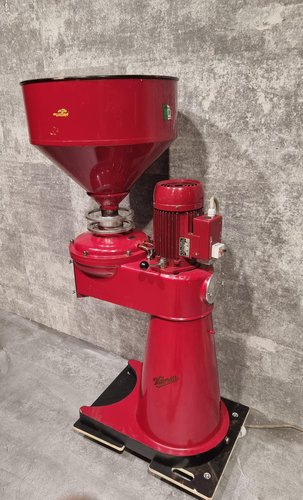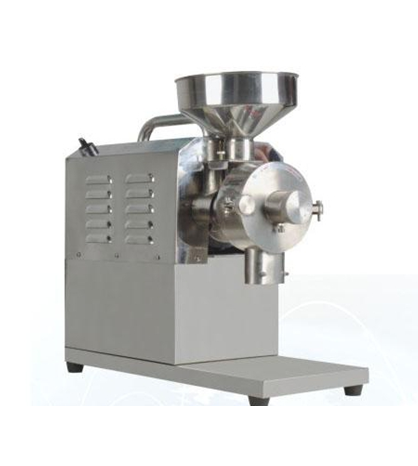Industrial Coffee Grinder for Bulk Coffee Production: Essential Information
Industrial Coffee Grinder for Bulk Coffee Production: Essential Information
Blog Article
Industrial Coffee Mill Overview: Increase Effectiveness and High Quality
In the competitive landscape of coffee manufacturing, choosing the ideal industrial coffee mill plays a critical role in boosting both performance and item high quality. Understanding the subtleties of various mill kinds and crucial functions-- such as personalized grind settings and durable building and construction-- can significantly influence the last taste profile of the coffee.
Understanding Grinder Types
When selecting an industrial coffee grinder, understanding the numerous kinds available is important for enhancing both flavor extraction and functional effectiveness. The 2 key sorts of mills are blade mills and burr mills. Blade mills utilize sharp blades that chop coffee beans into inconsistent dimensions, causing unequal removal and potentially unfavorable flavors. While blade grinders are usually extra appropriate and cost effective for small procedures, they are usually not recommended for industrial usage.

Eventually, picking the best sort of mill is indispensable to maintaining top quality and effectiveness in coffee production, making it important for businesses to purchase high-quality burr mills for ideal outcomes.
Trick Features to Take Into Consideration
Selecting an industrial coffee mill needs mindful consideration of several vital features that can considerably affect both performance and the general coffee experience. One of the key aspects to review is the grinding mechanism. Burr grinders are generally favored over blade mills, as they supply a regular grind dimension, which is crucial for optimum removal and taste.
One more vital feature is the mill's capability. Depending on the quantity of coffee you need to procedure, choose a version that can handle your demands without giving up rate or high quality. Furthermore, think about the grind setups provided. A versatile mill with numerous settings permits you to tailor the work dimension to various brewing approaches, improving the coffee's flavor profile.
The construction product additionally contributes in sturdiness and maintenance. Stainless-steel parts frequently use durability and are simpler to cleanse, which is essential for keeping health criteria. Lastly, evaluate the grinder's noise level, particularly in a busy coffee shop or manufacturing setting, where too much noise can be disruptive. Purchasing a grinder that stabilizes these features can significantly boost both functional performance and the high quality of the coffee offered.
Optimizing Grinding Process
To achieve the most effective outcomes in coffee prep work, maximizing the grinding process is crucial. The grind size considerably affects removal, taste, and total quality of the made coffee. Various brewing techniques call for specific grind dimensions; for circumstances, espresso demands a fine work, while French press demands a crude texture. Comprehending the partnership between grind size and developing approach is the primary discover this info here step in optimization.


In addition, keeping track of the grinding speed can optimize the process. Slower grinding typically creates less warm, protecting delicate flavors and aromas. Conversely, faster grinding may generate extreme warmth, adversely influencing the coffee's top quality.
Upkeep and Care Tips
Proper maintenance and treatment of commercial coffee grinders are vital for making sure ideal performance and longevity. Normal cleansing is the foundation of maintenance; deposit accumulation can impact flavor and grinding efficiency. It is suggested to cleanse the mill after each use, wiping down the outside and getting rid of any type of coffee grounds from the burrs.
Additionally, inspect the grinding burrs for damage. Plain burrs can jeopardize grind uniformity, so they must be replaced as necessary. Industrial Coffee Grinder. Occasionally calibrating the grinder is additionally vital, as this preserves the desired work size for numerous developing methods
Lubrication of relocating components ought to be performed according to the supplier's specs, as this minimizes friction and lengthens the life of the devices. It is important to make use of food-grade lubricating substances to make sure safety and conformity with health policies.
Finally, keep the grinder in a dry and stable atmosphere to prevent rust and deterioration. By adhering to these upkeep and treatment suggestions, drivers can enhance the effectiveness of their commercial coffee grinders while making certain top notch output and prolonged functional life.
Return on Investment Analysis
Evaluating the roi (ROI) for industrial coffee mills is critical for businesses seeking to enhance their coffee manufacturing capacities. A thorough ROI analysis assists figure out the economic stability of buying high-quality grinders, allowing companies to evaluate the preliminary expenses against prospective gains.
Examine the acquisition Website cost of the grinder, consisting of installation and any kind of needed adjustments to existing infrastructure. High-performance mills commonly lead to decreased grinding time and boosted throughput, which can substantially enhance performance.
Furthermore, consider the influence on item high quality. Industrial Coffee Grinder. Superior mills produce a more constant grind dimension, which can enhance flavor accounts and customer satisfaction, inevitably driving sales. By boosting the quality of the end product, organizations can justify greater pricing, leading to raised income
Verdict
In summary, an industrial coffee mill plays a pivotal role in improving both effectiveness and item web link top quality within coffee manufacturing. Ultimately, the tactical financial investment in a trusted grinder contributes considerably to enhanced profits and competition in the coffee market.
In the competitive landscape of coffee production, picking the appropriate commercial coffee mill plays a critical role in enhancing both performance and item high quality. The two primary kinds of mills are blade grinders and burr mills. Within the burr mill classification, there are flat burr mills and cone-shaped burr grinders, each with its benefits. Burr mills are typically preferred over blade mills, as they supply a constant grind dimension, which is important for ideal removal and taste.
In summary, an industrial coffee mill plays an essential function in enhancing both performance and product top quality within coffee manufacturing.
Report this page